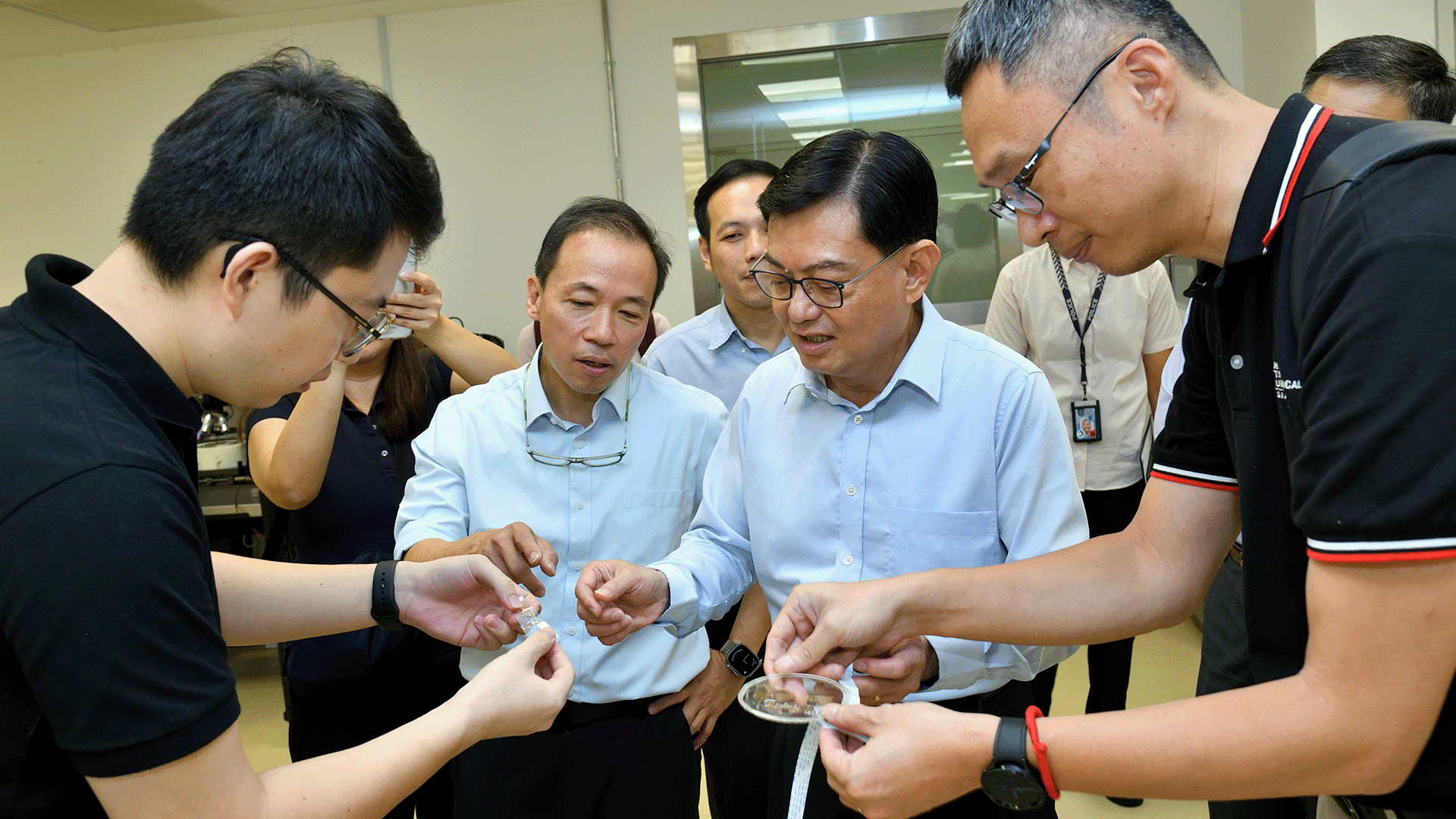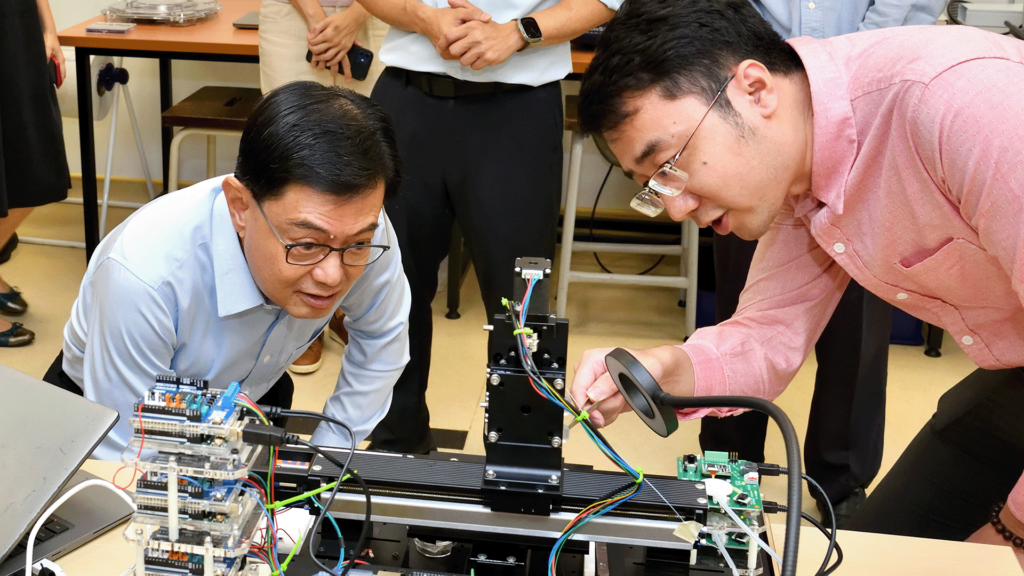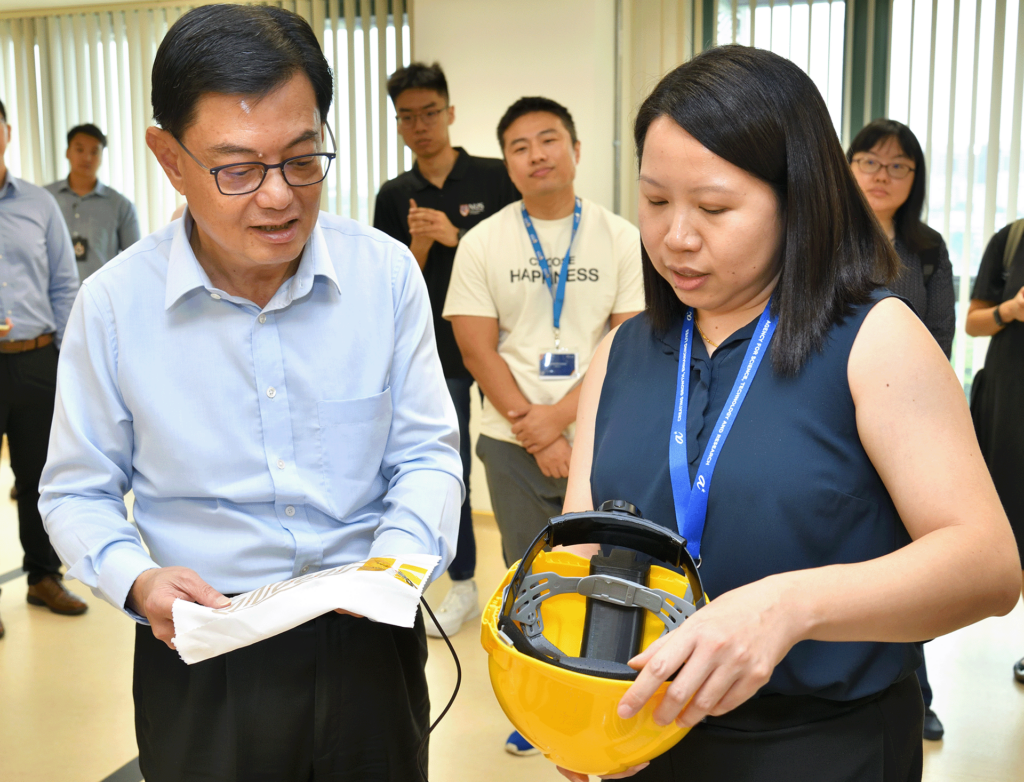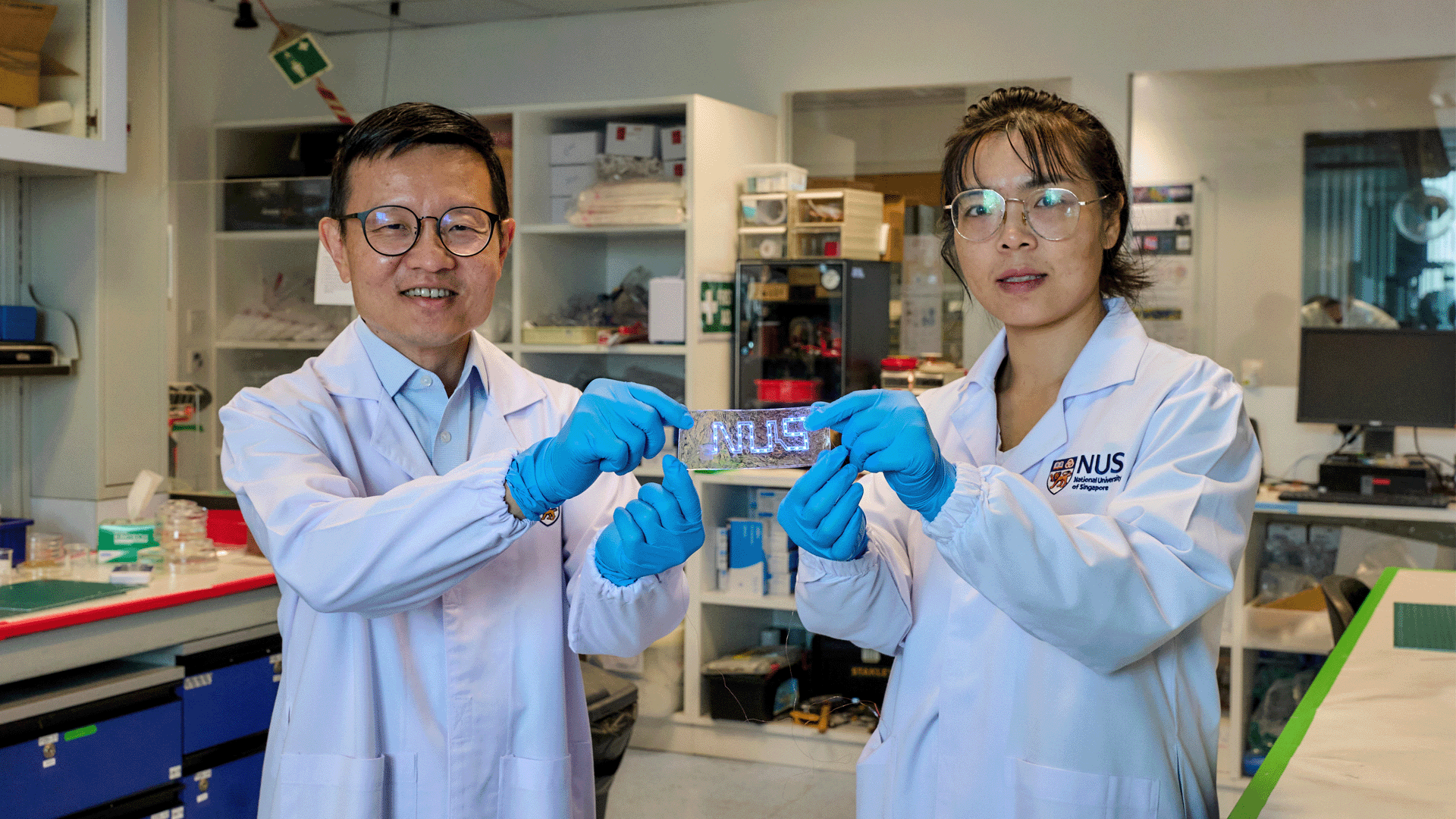HIGHLIGHTS
RESEARCH UPDATES, ACHIEVEMENTS & COLLABORATIONS



Deputy Prime Minister Heng Swee Keat visited the Singapore Hybrid-Integrated Next Generation µ-Electronics (SHINE) Centre to learn about the facility’s work in cutting-edge microelectronics research. Mr Heng visited the centre, based on the CDE campus, on 2 October 2023, meeting faculty, researchers and partners and engaging with presentations covering various aspects of SHINE’s work developing advanced technologies that will drive Singapore’s Smart Nation infrastructure.
Read more at: https://cde.nus.edu.sg/news-detail/shine-centre-welcomes-dpm-heng-swee-keat/

An innovative magnetic wound-healing gel, developed by researchers at CDE, promises to accelerate the healing of diabetic wounds, reduce the rates of infection recurrence, and in turn, lower cases where limb amputation is necessary. “Conventional dressings do not play an active role in healing wounds,” said Assistant Professor Andy Tay who leads the research team. “They merely prevent the wound from worsening and patients need to be scheduled for dressing change every two or three days. It is a huge cost to our healthcare system and an inconvenience to patients.”
Read more at: https://cde.nus.edu.sg/news-detail/innovative-magnetic-gel-heals-diabetic-wounds-three-times-faster/


An ultra-stretchable, self-healing, liquid metal material developed by researchers at CDE could revolutionise the world of wearable tech and smart devices, opening up new possibilities in healthcare, patient rehabilitation, soft robotics and a range of other fields. Named BiLiSC - short for Bilayer Liquid-Solid Conductor - the material boasts an astonishing ability to stretch up to 22 times its original length while maintaining its electrical conductivity. "We developed this technology in response to the need for circuitry with robust performance, functionality, and yet 'unbreakable' for next-generation wearable, robotic, and smart devices," said Professor Lim Chwee Teck, who is also Director of the NUS Institute for Health Innovation & Technology (iHeathtech).
Read more at: https://cde.nus.edu.sg/news-detail/liquid-metal-circuits-for-flexible-self-healing-wearables/
Developing alternate renewable power sources is vital to maintaining uptime for data centres, ensuring global connectivity and business continuity remain uninterrupted. Equinix, Inc. announced the results of their green hydrogen fuel technology study on 4 October 2023 conducted together with the Department of Electrical and Computer Engineering and the Centre for Energy Research & Technology (CERT).
As one of the world’s first research projects to explore proton-exchange membrane (PEM) fuel cells and/or alternate generator technologies as environmentally viable backup power supply options for data centres, the study assessed various types of alternative power supplies and their reliability, cost, operating conditions and environmental impact. Several systems that can feasibly utilise hydrogen as an energy source were spotlighted as potentially viable alternative solutions that operate on renewable energy. Based on specified conditions, environmental factors and operating requirements, data centre operators will now have access to additional insights to help make an informed decision when implementing alternate fuel supply systems.
Read more at: Equinix
Publications by Faculty
| Publication/ Faculty Involved | About |
| Medicine Without Meds
Professor Dean Ho (Provost’s Chair Professor; Director, N.1 and WisDM; Head, Department of Biomedical Engineering) Dr Yoann Sapanel, Dr Agata Blasiak (WisDM, Institute for Digital Medicine) |
How digital therapies can transform your health.
Traditional health care has a new ally. Some patients with sleep disorders, back pain, and diabetes are now being prescribed app-based treatment instead of drugs. Algorithms are helping cancer patients manage their symptoms, and video games are improving the attention span of children diagnosed with ADHD. A new class of medicine called digital therapeutics (DTx) is gaining traction and transforming the way patients engage with the health care system. In Medicine without Meds, Dean Ho, Yoann Sapanel, and Agata Blasiak explore the exciting potential for these digital therapies to transform patient care. |
| Maintainability of Facilities, Sustainable FM for Building Professionals
Professor Michael Chew (Head, Department of the Built Environment) |
The 3rd Edition of "Maintainability of Facilities, Sustainable FM for Building Professionals" explores the most up-to-date insights and strategies for creating sustainable, efficient, and resilient facilities through the concept of green maintainability. In this 496-page new edition, the book includes the latest industry codes of practices and regulations, and every chapter is summarised with an easy-to-use table to make the book more practical and user-friendly. Whether you are a practitioner or student in architecture, engineering, real estate, construction, project management, or quantity and building surveying and facilities management, this book will provide a comprehensive guide. |
| Regulatory Considerations on AI for Health
Professor Dean Ho (Provost’s Chair Professor; Director, N.1 and WisDM; Head, Department of Biomedical Engineering) |
The World Health Organization (WHO) has released a new publication listing key regulatory considerations on artificial intelligence (AI) for health. The publication emphasises the importance of establishing AI systems’ safety and effectiveness, rapidly making appropriate systems available to those who need them, and fostering dialogue among stakeholders, including developers, regulators, manufacturers, health workers, and patients.
Monique Kuglitsch (Fraunhofer Institute for Telecommunications, Heinrich Hertz Institute, Germany) and Dean Ho (National University of Singapore, Singapore) jointly led the Engagement and Collaboration topic area. |
Major Grants Awarded with Total Project Value > $1M
(start date in October 2023)
| Hosting Unit | Project Title | Funding Programme (Source Of Funding) |
Principal Investigator | Co-Investigator |
| Mechanical Engineering | Singapore Battery Pack Programme (SGBP2) | A*STAR Manufacturing, Trade And Connectivity (MTC) Industry Alignment Fund - Pre Positioning (IAF-PP) - 2022
(A*STAR) |
Palani Balaya | Lee Poh Seng; Lee Heow Pueh |
| Electrical and Computer Engineering | Scent Digitalisation and Computation (SDC) | A*STAR's (MTC) Programmatic Fund – 2023
(A*STAR) |
Thean Voon Yew |


